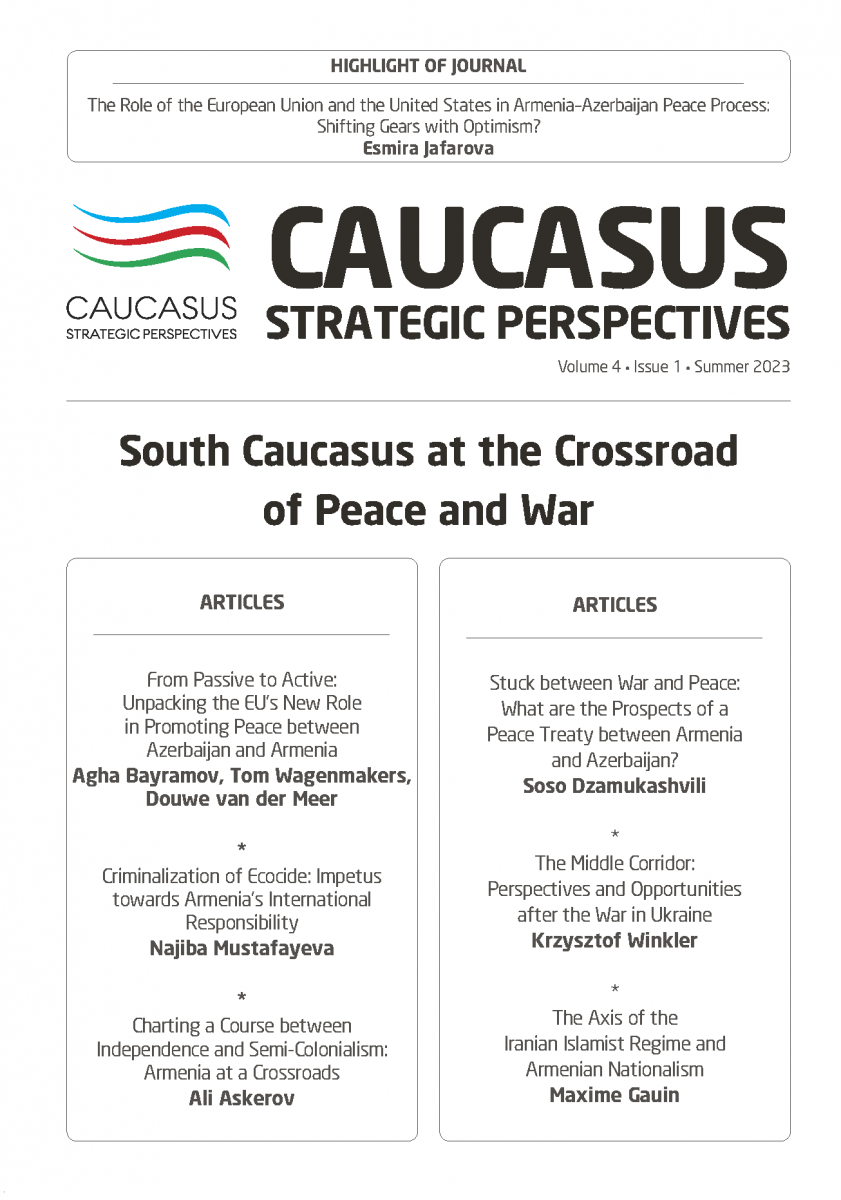From Passive to Active: Unpacking the EU’s New Role in Promoting Peace between Azerbaijan and Armenia
This article analyses the European Union’s (EU) increased involvement in promoting peace between Armenia and Azerbaijan following the Second Karabakh War in 2020. While the EU’s previous (indirect) engagement was shadowed by its member state France’s cochairing role within the Minsk Group, its recent diplomatic efforts and visibility signify a shift towards more active involvement in the South Caucasus region. This article explores the motivations behind the EU’s engagement, including its political and economic interests in the region. Additionally, the article highlights the challenges that the EU faces in promoting lasting peace in this region. Furthermore, this article provides policy recommendations for the EU to promote peace and stability in the region. These include maintaining a consistent stance against separatism, drawing on its own experience with resolving conflicts within the Union, and increasing its financial investments in trade, infrastructure, and renewable energy production. By following these recommendations, the EU can strengthen its influence in the South Caucasus and promote lasting peace in the region.
Latest news
- 12/27/2024 Call for Submissions-Caucasus Strategic Perspectives, Volume 6, Issue 1, Summer 2025 668 views
Popular articles
- 07/18/2022 The Russia–Ukraine War: Perspective of Azerbaijan 4325 views
- 10/14/2020 The Non-Aligned Movement: In Pursuit of Validity and Relevance in the Contemporary Global Order 3307 views
- 10/14/2020 Vicious Circle of the South Caucasus: Intra-Regional Conflicts and Geopolitical Heterogeneity 3291 views
- 10/14/2020 Relevance of Non-Alignment for Azerbaijan’s Foreign and Security Policy 3020 views





